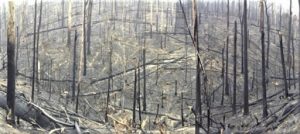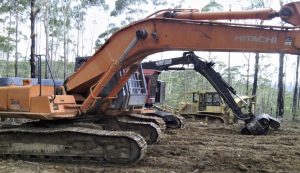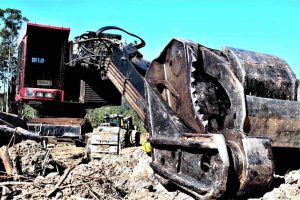National Call to Immediately Halt Logging of Remaining Native Forests
in the wake of the bushfire catastrophe.
Stop logging native forests!
Give forests a chance!
Please endorse this urgent nation-wide call
Losses from fire since July 2019 are unprecedented and not over yet. Yet as if nothing has happened, State forestry agencies continue destructive logging of forests now in a perilous state.
Astoundingly, the logging lobby, the Australian Forest Products Association (AFPA), asks for subsidies to introduce heavy machinery into burnt, unburnt and recovering native forests to log for unproven ‘hazard reduction’ or ‘salvage’.
As of February 2020, 12 million hectares have burnt. A range of forests, from young regrowth to old growth up to a thousand years old, has been killed or severely damaged.
Fire has penetrated world-renowned Gondwana rainforests not burned for longer still. Mega fires have burned across World Heritage areas, National Parks and other reserves. Importantly, forests routinely logged, even as recently as the last one or two years, have also burnt.
The estimated one billion native animal deaths exclude bat and insect deaths. This figure soars with their inclusion.

Millions more animals are suffering, facing starvation, exposure and predation by feral species. With the loss of forest ground cover, tonnes of toxic ash have entered waterways after heavy downpours. In some catchments, not only fish but all aquatic lifeforms have been poisoned or suffocated.
Many threatened species are closer to extinction; some thought to be regionally extinct, or – tragically – wiped out. Insect loss threatens the survival of many birds, bats, small mammals and reptiles, and could have unknown disastrous consequences for pollination processes, which would threaten plant life and the recovery of forest ecosystems.
Human and environmental losses are massive. People have lost family members, homes, health and livelihoods, and face uncertain futures as the fires die out. Environmental destruction means economic loss for many industries, not least tourism, beekeeping and agriculture. The implications of the loss of forests for both agriculture and aquaculture cannot be overstated.
The recovery of our native forests is critical, given their role in bringing rain, filtering and regulating water flow, recapturing atmospheric carbon, and providing habitat that is the basis for biodiversity. These fires take conservation into uncharted territory, making the preservation of any undisturbed habitat the highest priority.
Please endorse this urgent nation-wide call
In the context of changing climate, new approaches to fire and forest management are needed. Although urgent, scientists and fire chiefs warn there is no one, simple solution, and we cannot return to past practices. Monitoring, assessment and reassessment of the impacts of fire must now take place so that all levels of government can develop climate and forest policies that can work for our future.

Despite this call for change, the Federal government has indicated support to calls by the logging industry for access to fragile burnt native forest to do more destructive logging, in the name of salvage and/or ‘hazard reduction’ and in NSW the industry is calling for access to wood in both burnt and unburnt areas.
As vast areas of valuable native forest have undergone the most devastating impacts Australia has seen, allowing heavy machinery in to remove or damage biological material that is essential for recovery would be an act of gross irresponsibility.
Logging for ‘salvage’ is notoriously destructive to recovering forests; ‘hazard reduction’ by thinning or burning forests is known to be ineffectual and often counterproductive, in many cases increasing forest flammability. Thinning forests is not a panacea against fire.
Until a full assessment of loss and options for forest rehabilitation are explored, informed by evidence-based science, no native forest logging should be allowed, nor any other destructive activity.
Please endorse this urgent nation-wide call
In decline for decades due to unsustainable and uncompetitive logging and heavily reliant on government subsidies, the native forestry logging industry employs very few people. As part of the recovery process plantations should be the sole basis of the future forestry industry. Given the extent of fire impact on native forests, with habitat so drastically degraded and depleted, logging should stop immediately. Its continuation makes neither environmental nor economic sense.

Native forest timber supply contracts can be cancelled through force majeure, a legal clause in contracts meaning “superior force”. One or more parties can be exempted from liability for not fulfilling contract obligations in the event of extraordinary circumstances beyond their control.
In January the Victorian Supreme Court sensibly granted an interim injunction preventing logging in three native forest compartments, recognizing “a real threat of a serious or irreversible damage to threatened species and their habitat should harvesting operations continue “¹.
In February the Victorian state government issued ten force majeure notices cancelling timber supply contracts owing to bushfire damage. Because of climate emergency induced bushfires and the inter-related extinction crisis, protection of forest habitat should be the highest priority, across all Australia.
Healthy forest ecosystems are critical to human health and survival. Evidence-based science must guide the recovery and future management of our nation’s native forests to enhance their resilience to climate change.
AFCA calls on governments to immediately halt logging native forests pending an informed assessment of the reality we now face.
Please endorse this urgent nation-wide call
1 Justice Kate McMillan, Victorian Supreme Court
Download a copy of the statement for your records (728 KB – pdf)
Stop Logging Native Forests! Give Forests A Chance!


